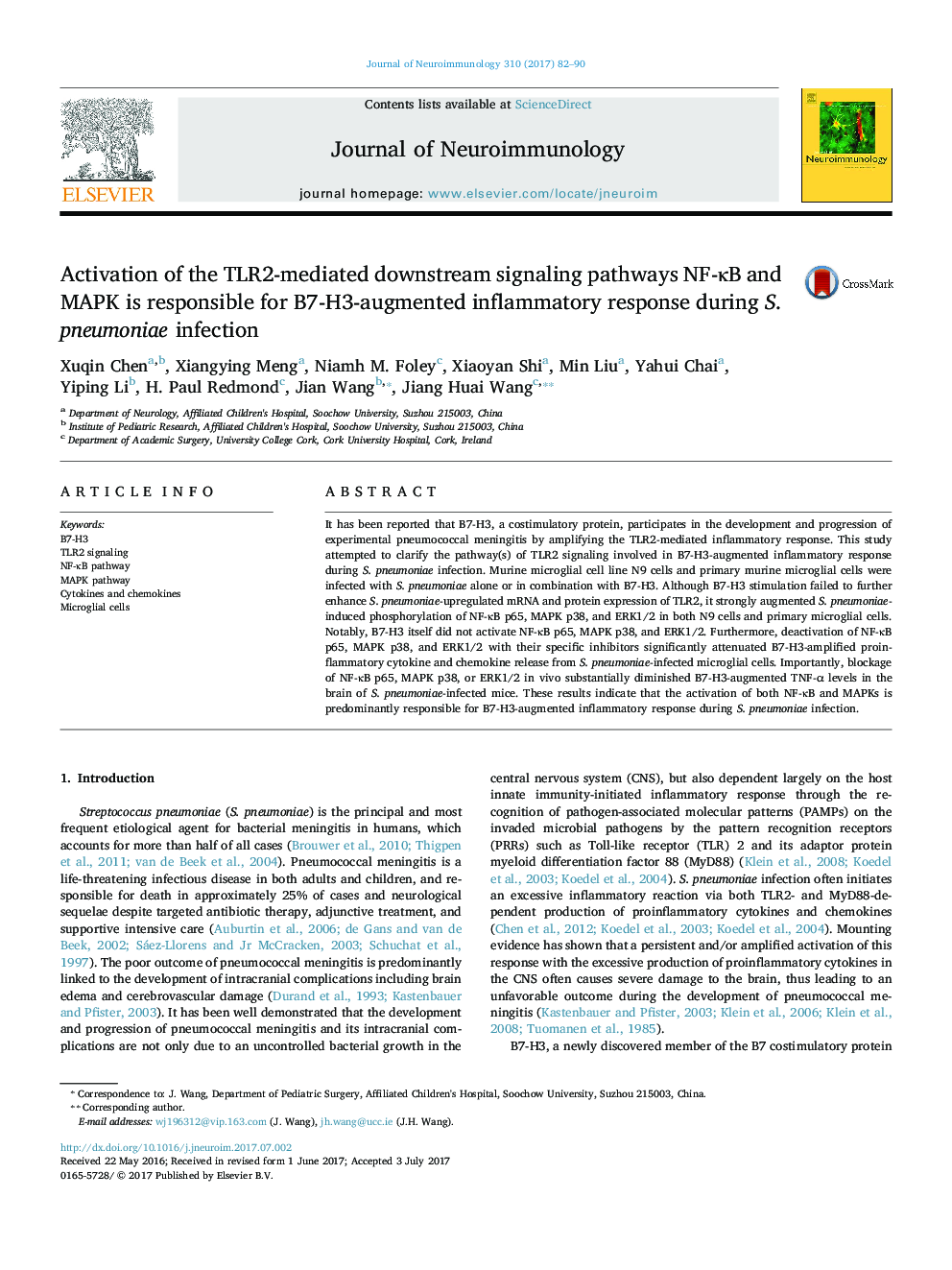| کد مقاله | کد نشریه | سال انتشار | مقاله انگلیسی | نسخه تمام متن |
|---|---|---|---|---|
| 5630189 | 1580365 | 2017 | 9 صفحه PDF | دانلود رایگان |

- B7-H3 stimulation does not enhance S. pneumoniae-induced TLR2 expression.
- B7-H3 stimulation augments S. pneumoniae-induced activation of downstream NF-κB and MAPK pathways.
- Activation of both NF-κB and MAPKs is responsible for B7-H3-augmented inflammatory response during S. pneumoniae infection.
It has been reported that B7-H3, a costimulatory protein, participates in the development and progression of experimental pneumococcal meningitis by amplifying the TLR2-mediated inflammatory response. This study attempted to clarify the pathway(s) of TLR2 signaling involved in B7-H3-augmented inflammatory response during S. pneumoniae infection. Murine microglial cell line N9 cells and primary murine microglial cells were infected with S. pneumoniae alone or in combination with B7-H3. Although B7-H3 stimulation failed to further enhance S. pneumoniae-upregulated mRNA and protein expression of TLR2, it strongly augmented S. pneumoniae-induced phosphorylation of NF-κB p65, MAPK p38, and ERK1/2 in both N9 cells and primary microglial cells. Notably, B7-H3 itself did not activate NF-κB p65, MAPK p38, and ERK1/2. Furthermore, deactivation of NF-κB p65, MAPK p38, and ERK1/2 with their specific inhibitors significantly attenuated B7-H3-amplified proinflammatory cytokine and chemokine release from S. pneumoniae-infected microglial cells. Importantly, blockage of NF-κB p65, MAPK p38, or ERK1/2 in vivo substantially diminished B7-H3-augmented TNF-α levels in the brain of S. pneumoniae-infected mice. These results indicate that the activation of both NF-κB and MAPKs is predominantly responsible for B7-H3-augmented inflammatory response during S. pneumoniae infection.
144
Journal: Journal of Neuroimmunology - Volume 310, 15 September 2017, Pages 82-90